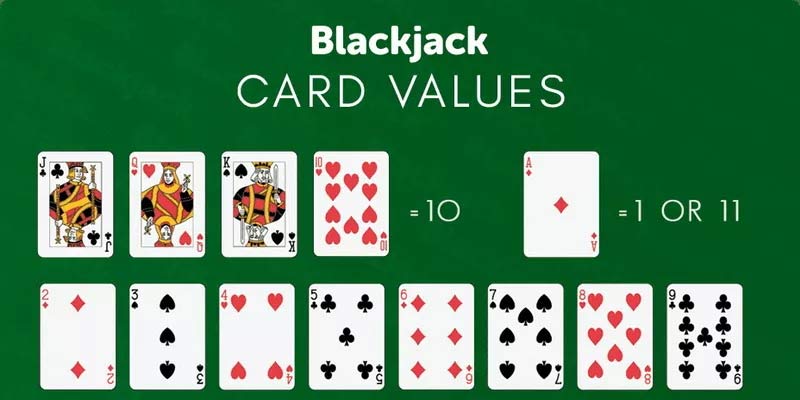If you’re new to the game or looking to sharpen your skills, understanding blackjack rules is your ticket to confident play. This guide breaks down the essentials of blackjack with expert clarity, practical tips, and a playful nod to the thrill that keeps players hooked. Let’s deal the cards and dive into the action https://188betasia.info/.
What Is Blackjack and Why It’s a Casino Classic
Blackjack, also known as 21, is a card game where your goal is to beat the dealer by getting a hand value as close to 21 as possible without going over. It’s a game of skill and chance, where quick decisions and a grasp of blackjack rules can tilt the odds in your favor. Unlike slots, which rely purely on luck, blackjack rewards smart play, making it a favorite for those who love a challenge. The game’s allure lies in its simplicity—learn the basics, and you’re ready to play—yet its depth keeps you coming back to perfect your strategy.
Picture the scene: you’re at a table, cards flipping, chips stacking, and the dealer’s gaze daring you to make your move. Blackjack is as much about the atmosphere as the gameplay, whether you’re in a bustling casino or playing online from your couch. Mastering blackjack rules opens the door to this electrifying world, letting you join the ranks of players chasing that perfect 21. Let’s explore how to play and win.
The Core Blackjack Rules: How to Play
At its heart, blackjack is straightforward. The game uses a standard 52-card deck (or multiple decks in casinos), and each card has a point value: numbered cards (2-10) are worth their face value, face cards (Jack, Queen, King) are worth 10, and Aces are worth either 1 or 11, depending on what benefits your hand. Your objective is to build a hand value closer to 21 than the dealer’s without exceeding 21, known as “busting.”
A typical round begins with you placing a bet. The dealer gives each player (including themselves) two cards. Your cards are usually face-up, while the dealer has one card face-up (the “upcard”) and one face-down (the “hole card”). You then decide how to play your hand based on these blackjack rules: hit (take another card), stand (keep your current hand), double down (double your bet for one more card), split (if you have two cards of the same value, split them into two hands), or surrender (forfeit half your bet to exit the hand, if allowed). Once all players act, the dealer reveals their hole card and plays their hand, typically hitting until their total is 17 or higher.
You win if your hand is closer to 21 than the dealer’s or if the dealer busts. A “blackjack”—an Ace plus a 10-value card on the initial deal—pays 3:2 in most games, though some offer 6:5, so check the table rules. If you and the dealer tie (a “push”), your bet is returned. These core blackjack rules form the foundation of every game, whether at a casino or online.
Key Variations and Table Rules to Know
While the basic blackjack rules are universal, casinos tweak them to add variety or adjust the house edge. Pay attention to these variations before sitting down. Some tables use a single deck, which favors players, while others use multiple decks (4-8) to make card counting harder. The dealer’s hitting rule—whether they hit or stand on a “soft 17” (a hand with an Ace counted as 11, like Ace-6)—affects your odds. Tables where the dealer hits on soft 17 are slightly tougher.
Other rules to check include doubling down restrictions (some tables limit it to hands totaling 9, 10, or 11), splitting limits (whether you can resplit or split Aces), and surrender options (early or late surrender). Payouts also vary—blackjack paying 3:2 is better than 6:5, as it gives you a higher return. Online, always choose platforms regulated by trusted bodies like the UK Gambling Commission, and review their blackjack rules to ensure fairness. Starting with tables that offer player-friendly rules, like 3:2 payouts and single-deck games, sets you up for success.
Strategies to Boost Your Blackjack Game
Blackjack rules are just the start—strategy is where you shine. Basic strategy charts, which tell you the best action (hit, stand, etc.) based on your hand and the dealer’s upcard, are your go-to tool. For example, always hit on a hand of 8 or less, stand on 17 or higher, and double down on 11 against a dealer’s weak upcard (2-6). These charts, grounded in math, minimize the house edge to as low as 0.5% in ideal conditions.
Bankroll management is crucial. Set a budget for each session, and bet small portions (1-2% of your total) to weather losing streaks. Avoid “insurance” bets when the dealer shows an Ace—they’re rarely worth it. If you’re curious about card counting, it’s a legal but challenging skill that tracks high and low cards to gauge deck favorability. Casinos frown on it, so practice discreetly and only in single-deck games. For most players, sticking to basic strategy and enjoying the game’s flow is enough to stay competitive.
Trust and Expertise in Blackjack
Trust is vital when playing blackjack. Choose casinos or online platforms with strong reputations, licensed by regulators like the Malta Gaming Authority. Look for certifications from auditors like eCOGRA, which verify fair card shuffling and payouts. Online, read user reviews and ensure the site uses secure encryption for transactions. At physical tables, pick venues with professional dealers and transparent rules to guarantee a fair game.
Building expertise means studying blackjack rules and practicing regularly. Free online blackjack games are a great way to test strategies without risk. Engage with communities on forums or watch tutorials to learn from seasoned players. Focus on mastering one table type (like single-deck 3:2 games) before exploring variants like Spanish 21. The more you play, the sharper your instincts, turning you into a formidable opponent at any table.
The Social Vibe of Blackjack Tables
Blackjack tables hum with energy—players cheering a hot streak, groaning at a bust, or swapping stories between hands. It’s a social hub where strangers bond over shared wins and dealers add flair with quick wit. Online, chat features and live-dealer games recreate this vibe, connecting you with players worldwide. The table is a stage for drama, from the thrill of a perfect 21 to the agony of a dealer’s last-second draw.
Keep the fun alive with balance. Set limits on time and money to avoid chasing losses. Play for the experience—the strategy, the camaraderie, the rush—not just the payout. Whether at a casino or online, a relaxed mindset makes every hand more enjoyable.
Final Thoughts: Master the Blackjack Rules and Own the Table
Blackjack rules are your gateway to a game that’s as rewarding as it is thrilling. With a solid grasp of the basics, a touch of strategy, and a commitment to responsible play, you’ll navigate any table with confidence. Choose trusted venues, practice your moves, and soak up the electric atmosphere. So, take your seat, watch the cards fall, and chase that 21. Here’s to sharp plays, big wins, and unforgettable nights at the blackjack table.



